Earlier this fall, influencer, brand ambassador and professional skier David Lesh took the trail to Colorado’s iconic Maroon Bells, stepped into the lake at the base of the stunning mountains that have graced magazine covers, inspired plein air art and uplifted visitors to the West for generations, and dropped a deuce.
Shocking? Certainly. But Lesh has a history of disrespect for America’s public lands. In July 2019, he was cited for riding his snowmobile in a closed cirque atop Independence Pass that stretches between the Arkansas River Valley and Aspen. Last winter, he took over a non-motorized snow park in Summit County with his snowmobile, and earlier this summer, he was cited and fined for hiking into Hanging Lakes near Glenwood Springs during a COVID-related trail closure.
And we know this how?
He posted his antics on Instagram. Yes. Even the poop.
Of course, Lesh’s intent is to get a rise out of everyone who sees his social posts — to see how many of us clutch our pearls and righteously condemn him for his “brazen” publicity stunts. It seems he is determined to one-up himself at every possible turn — it’s one thing to hike a closed trail or ride a snowmachine across a melting summer snowfield. But leaving behind a floater in Maroon Lake? Ugh.
Certainly he’s earned some ire, and not just from folks on social media. Earlier this week, federal magistrate David Gallagher rightfully banned Lesh from entering any of the millions of acres of U.S. Forest Service lands for the foreseeable future. This is after Lesh agreed, on Oct. 2, to follow the same rules all visitors to public lands are expected to follow.
“I find it appropriate to change [Lesh’s bond conditions from the initial Oct. 2 court event] to protect the land, not only from Mr. Lesh’s direct actions, but also from the influence Mr. Lesh clearly has,” Gallagher said when dropping the hammer on the wayward social media maven. Gallagher also said the severity of the new restrictions placed on Lesh were done “to ensure the safety of the community.”
The judge, thankfully, recognized the real kicker in this case: influence.
Is it unfortunate that David Lesh has chosen to flaunt social norms and disregard long-held U.S. Forest Service regulations put in place for user safety and user experience, purely for shock value? Absolutely. But what’s really alarming is that an “influencer” like Lesh has 85,000 followers on Instagram, many of whom seemingly approve of his larks. Could Lesh be creating an army of public lands defecators? Or, at the very least, others who are more willing to flaunt regulations and go and do as they see fit, the impact on America’s collective national treasure be damned?
This is where the term “influencer” becomes a relevant concern to anyone who uses public lands, anglers included. And let’s be clear. Lesh might be an egregious offender by posting his scofflaw dalliances on public lands, but he’s not the only offender. Not even close.
A little over a year ago, I attended a travel blog conference in Montana — it’s an annual and well-intended event designed to connect people within the travel industry with bloggers and influencers who might like to visit and promote various destinations. The conference cemented to me some very real changes in the media landscape that I have long suspected but now firmly understand as real — brands, organizations, companies, destinations and even people are often defined, not by the products they craft or the experiences they offer, but by the people who promote them.
Influencers. Brand ambassadors.
In the angling community, we have our share, no doubt. Thankfully, I’ve yet to meet one who would dare take a crap in a crystalline mountain lake, let alone take a photo of the act in progress. But we’ve had our moments — who can forget that infamous 2018 American Angler cover photo featuring artist and influencer Patrick Duke posing enthusiastically with a giant Green River brown trout that was likely coaxed off a spawning redd before coming to hand and being captured in megapixels? Duke caught his share of grief, to be certain.
(For the record, I reached out to Duke on Instagram, where he has almost 30,000 followers. I wanted to ask him how the backlash has impacted his life and his work, and if he’s doing anything differently in light of the controversy — I haven’t heard back.)
But I would suggest that, while fish — particularly big fish that reproduce — will always be sacred to anglers, we’re likely a little dilatory when it comes to the places these fish live.
Oh, and a full disclaimer. I’ve written three fly fishing guide books in the last 20 years. So I’m no angel. I’ve been accused of “hot-spotting” more than once, and while that may be accurate under certain lenses, I’ve always espoused the notion that places need advocates willing to fight on their behalf should something truly dubious come down the pike. What does that look like? Well, have you ever seen a drilling rig on the bank of a trout stream?
This is a tough issue to enunciate, and I think that’s largely a sign of the times. But think of it this way: too much of anything is likely a bad thing. In Wyoming in 2018, the Jackson Hole Travel and Tourism board asked visitors to stop tagging the places they visit in and around Grand Teton National Park, citing Delta Lake, a stunning glacial lake at the base of the Tetons, as a prime example of a destination being loved to death. The lake, which just a few years ago, would see maybe 20 visitors a day during the high summer season, is now seeing 10 times that many visitors. People are taking the nine-mile trek to take wedding photos, pose for graduation portraits and to schlep the products they represent while tagging the lake for thousands upon thousands to see.
You might think it’s harmless inspiration — that the marvelous photo of the hard-bodied influencer posing in the perfect downward dog on the shores of the blue-green lake while wearing her sponsored brand of attire, with her nails and hair done by a certain stylist (also tagged, by the way) and her makeup flawless, thanks to her tagged artist is perfectly innocent — but think what happens when one single place sees a 1000 percent increase in visitors. What little infrastructure exists is inadequate. Damage ensues. Garbage inevitably piles up. Eventually, some black-hat brand ambassador comes along and decides to make news by evacuating in the water.
That is, of course, an extreme example, but anglers ought to go to school on the idea that geotagged locations can and do go viral. Take Horseshoe Bend outside of Page, Ariz., for example. A couple of decades ago, a few thousand folks visited every year. Now? It gets 1.5 million visitors. Page has had to ramp its infrastructure just to keep up with the traffic and to keep visitors and locals safe. The impact to the environment is palpable.
Apply that logic to a fishery, where anglers seeking the same experience that an influencer promoted on his or her Instagram account might flock to a location, hammer the trout and potentially degrade the place and the experience.
Let’s be honest, though. One more hashtag promoting the big rainbows on the Henry’s Fork likely isn’t going to ruin the Henry’s Fork — in angling circles, especially in the Lower 48, most trophy fishing locales are well-known and well-visited (and the infrastructure is at least somewhat in line with the numbers of people showing up to enjoy the experience). But apply the infamous hashtag to the name of some small mountain creek that produces big cutthroats in the middle of nowhere, and an influx of even a few hundred anglers could have a serious negative impact on the fish, the creek and, of course, the experience.
If you’re not careful, your great experience might be somewhat diminished after that hashtag goes viral over social media. And that says nothing about the impact it might have on the place and the fish you love.
The lesson? It’s OK to share and enjoy, but keep the circle smaller. And maybe keep the hashtags to yourself. And, of course, don’t poop in the lake.




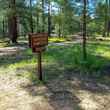
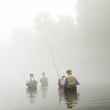
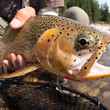
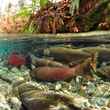
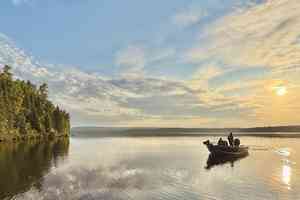


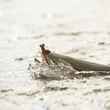
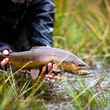
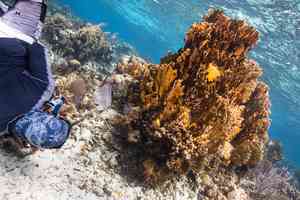


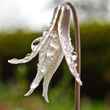



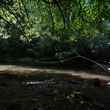
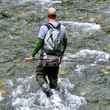
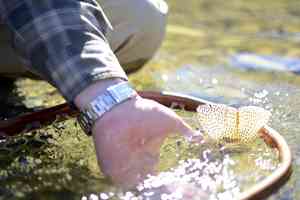
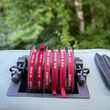

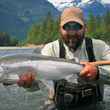
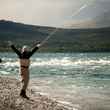
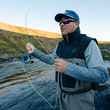
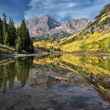
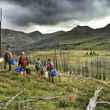
Comments
Dave Cannon replied on Permalink
My memory is not what it used to be - and I don't remember saying this, but it sounds like something I'd say - but a Wyoming friend of mine told me that 35-years ago when I lived there, that I said, "Give a nice place twenty years, and it'll be ruined". He calls it the 20-year rule. It's for the very reason this article was written. Back then I was a fish biologist for the Forest Service, and I had a guy call me who wanted information on a stream that I won't name, but shortly after - there appeared an article in a magazine about the stream he asked about. The crazy thing about it was, he spelled the name of the stream wrong. About that same time, there was an article in a magazine titled, "No One Here But Us Trout". It was about how you could fish this secluded Wyoming stream and be, "all by your lonesome", and catch plenty of nice sized cutthrout trout. So, this problem is not new - social media just skyrockets the influence by influencers...and above all, the impact.
Anne Elam replied on Permalink
Thought I'd sit and enjoy reading the new Hatch while having a late bite after blowing leaves tonight. David Lesh, you ruined my supper. Shame on you!
Tom Williams replied on Permalink
Thoughtfully written and your position is reasonable and rational. You'll probably get a lot of negative pushback from the ambassador set - lol, keep it up!
Vince Homer replied on Permalink
Please take at Google Earth of the San Juan. The land all around...I mean everywhere...is dotted with thousands of oil and gas wells. So to answer your question, yes I've seen an oil well by a trout stream. Hundreds of them. I have more examples if you need. I am in the oil and gas business, and we have done such a great job environmentally with blending in, you guys would never know if you're fishing close to a drilling site or not. You wouldn't have a clue. If you research before you blog, you'll find environmental regulations that really put the honus on us to blend in, and not harm the land or water as we drill for oil TO POWER YOUR FISHING TRAVELS! Check out Pennsylvania as well. If you've fished any if the big timers there, there's a great chance you were fishing near a well you had no idea was there. If you'd like a guest author, I'll be glad to enlighten. Because so much of this is based upon your personal sentiment, not on fact. Thanks!
S. DALCIN replied on Permalink
This guy is a worthless piece of shit that should be removed from the gene pool. Obviously begging for the attention his mommy never gave him growing up!
Chaz replied on Permalink
Excellent.
And thanks for your part in helping keep fuel flowing so I can get to my preferred angling destinations. Glad the market is where it's at so I can afford to get there.
Too much assumption and not enough facts.
Pages